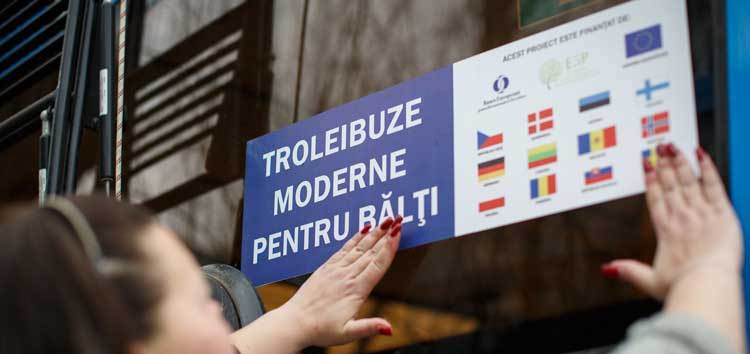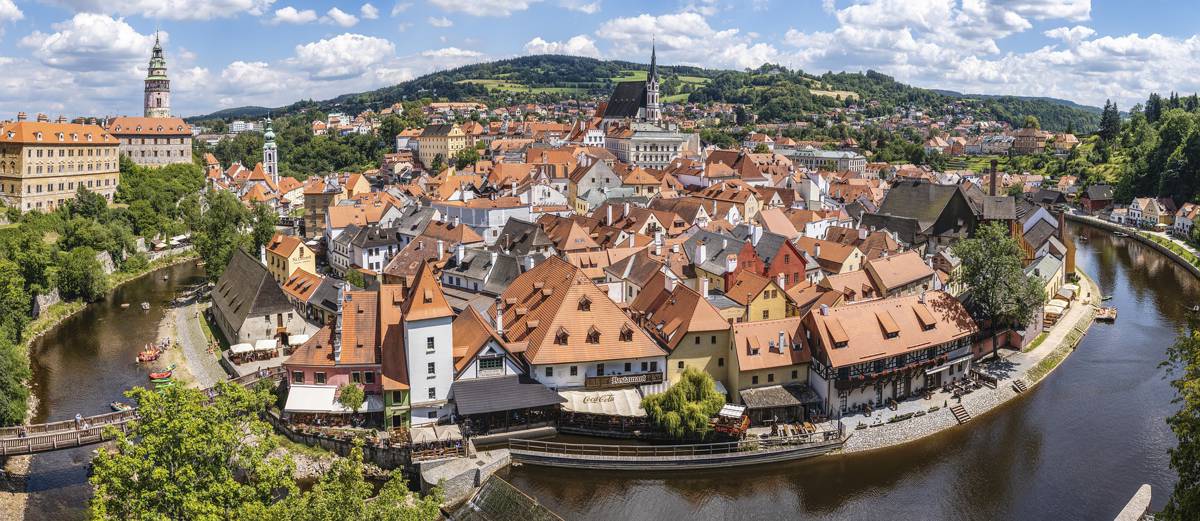EBRD funds new trolleybuses in Balti, Moldova
Commuters in Balti, Moldova’s second-largest city, can now travel on 11 new trolleybuses funded by the European Bank for Reconstruction and Development (EBRD) and the Eastern Europe Energy Efficiency and Environment Partnership (E5P) Fund.
In Moldova, the fund is supported by the European Union, the largest donor, as well as the Czech Republic, Denmark, Estonia, Finland, Germany, Lithuania, Moldova, Norway, Poland, Romania, the Slovak Republic and Sweden, the fund’s initiator and largest bilateral donor.
The municipal trolleybus company of Balti has received a €2.5 million EBRD loan and a €1.2 million grant from the E5P, to promote greener public transport.

The new vehicles, supplied by the Ukraine-based company Torhovyi Dim Litan, welcomed their first passengers this week. They operate on electricity and use batteries, which allow them to circulate in remote areas without using overhead wires.
With the new vehicles, the city has expanded existing routes to serve remote, yet densely populated areas and has improved the overall efficiency of the service.
The acquisition is part of EBRD Green Cities, an urban sustainability programme that is helping Balti develop an action plan to identify, prioritise and address environmental challenges. The initiative aims to create a greener future for cities and their inhabitants by investing in infrastructure and adopting the best policies for long-term environmental gains. At the same time, with new vehicles, residents of Balti will benefit from modern standards of passenger comfort in public transport.
The new EBRD and E5P funds follow a successful renewal of the Balti trolleybus fleet between 2012 and 2014. During that period, the city bought 23 modern trolleybuses, spare parts, power-supply infrastructure components and other equipment. That comprehensive upgrade was financed by an EBRD loan of €3 million and a €1.6 million investment grant from the European Union.
“It is part of the EBRD’s priorities to improve municipal infrastructure and services across the country,” said Angela Sax, Head of the EBRD’s Moldova office. “We are proud to improve people’s everyday lives in Balti with these new trolleybuses and to build a greener city in the long term, together with our partners.”
Peter Michalko, Ambassador of the European Union to Moldova, commented: “With EU support for the E5P Fund, citizens of Balti will now have access to greener and more comfortable public transport, in line with the EU green deal approach. This support shows that green development brings better public services to citizens, as well as improving air quality and contributing to climate change mitigation. I am proud to witness the excellent results achieved by the E5P Fund in the Republic of Moldova. In fact, this initiative was launched by Sweden, and the EU is by far the largest contributor, considering the additional contributions from some EU member states, as TeamEurope. Even more important is the strong ownership demonstrated by the Republic of Moldova itself, by directly contributing to the fund. This is the second initiative implemented in Balti thanks to the solid partnership with the EBRD as implementing partner. We are stronger together!”
The EBRD is one of the largest institutional investors in Moldova. To date, it has invested around €1.42 billion in more than 140 projects in the country to support private businesses and key infrastructure and to build a greener and more sustainable economy.
The E5P is a €240 million multi-donor fund initiated by Sweden and operating in the whole Eastern Partnership region. The E5P Fund in Moldova totals €28 million and includes a €1 million contribution from Moldova. The EU is the largest overall contributor, with €18.75 million. Other donors include the Czech Republic, Denmark, Estonia, Finland, Germany, Lithuania, Norway, Poland, Romania, the Slovak Republic and Sweden.
The funds are to help Moldova improve energy efficiency, contributing to energy security, economic competitiveness and policy dialogue, while having a positive impact on the environment.





















